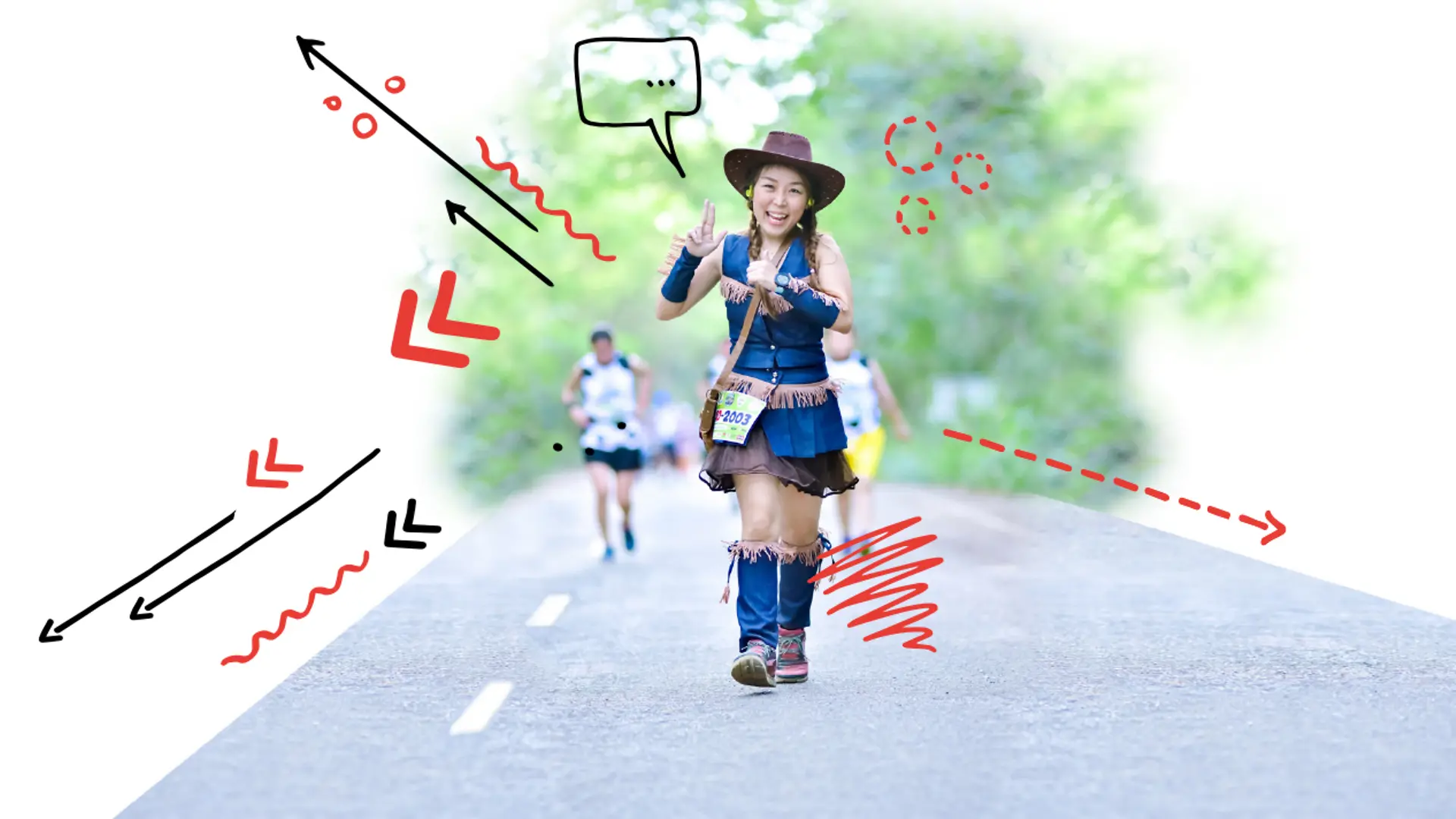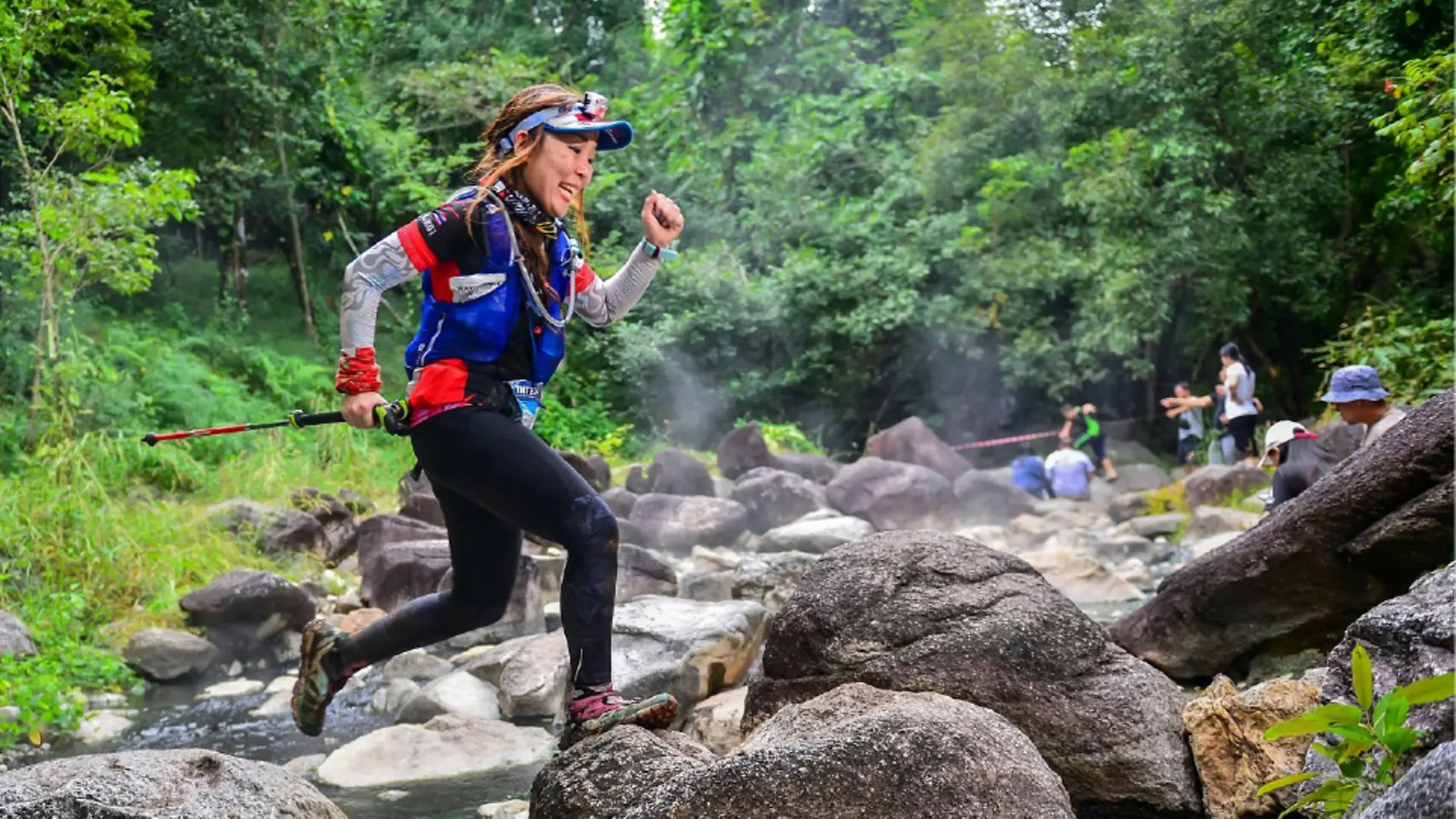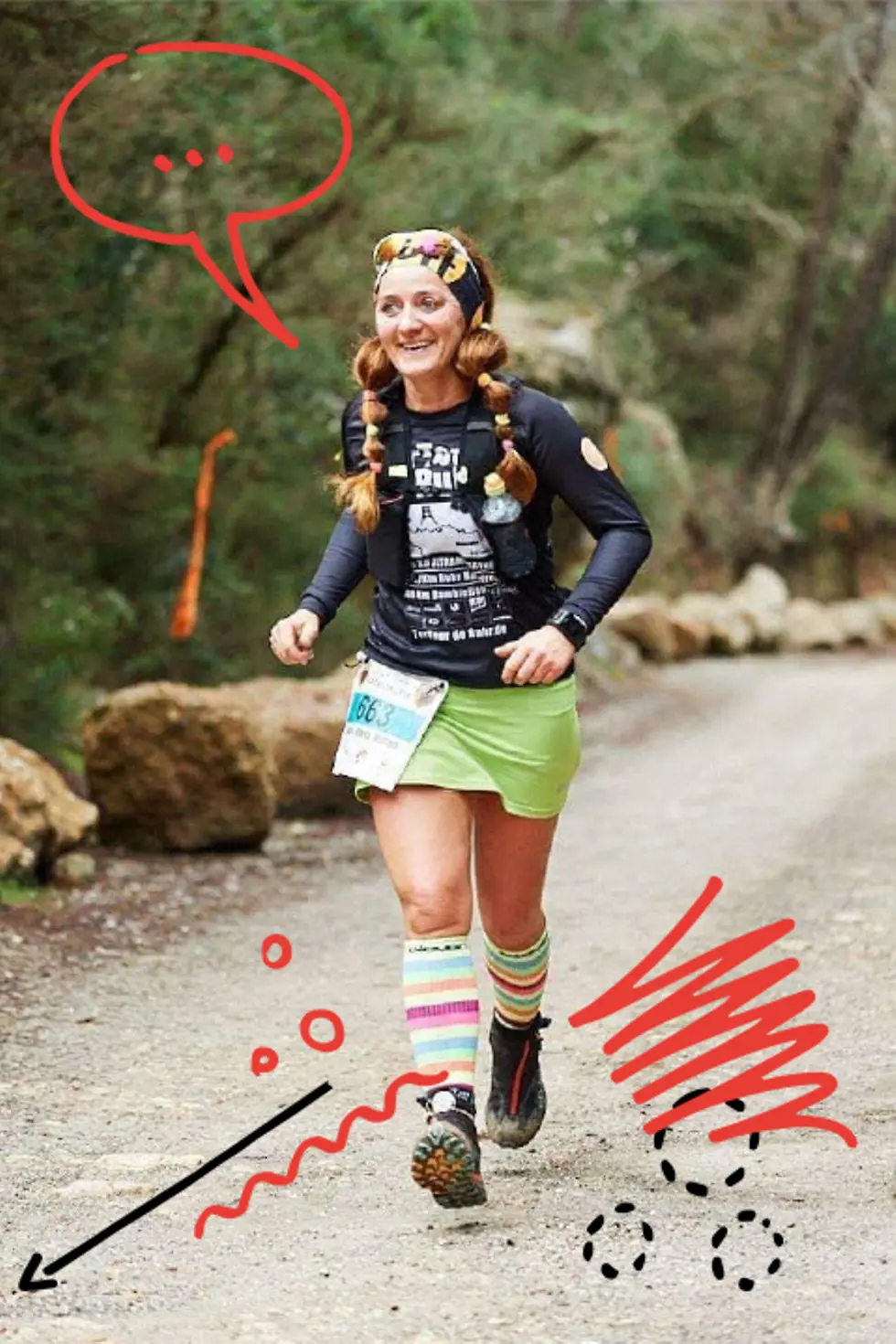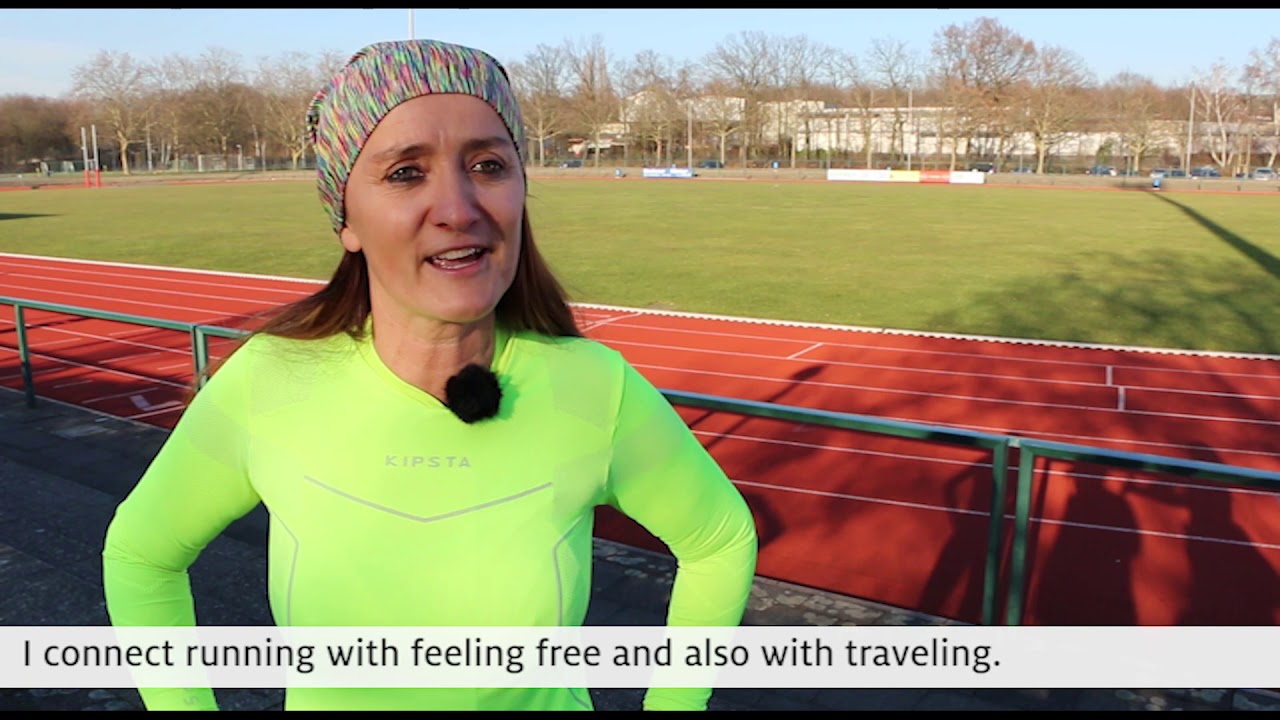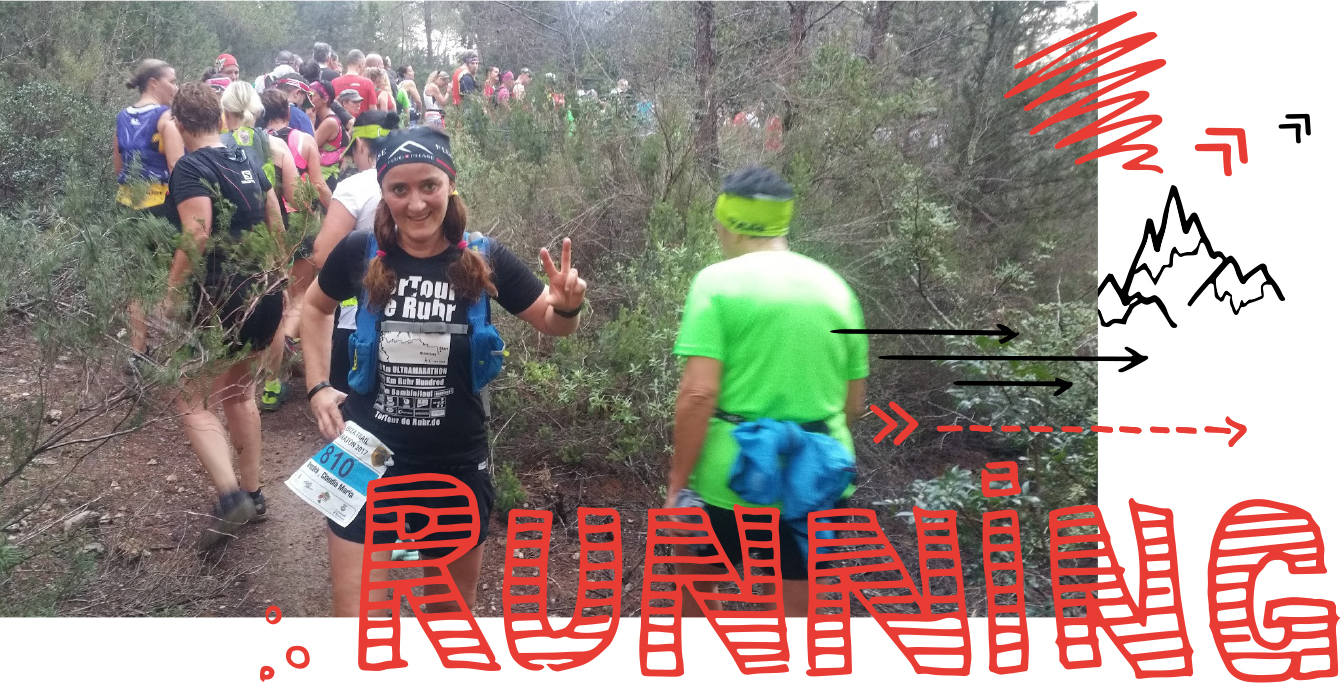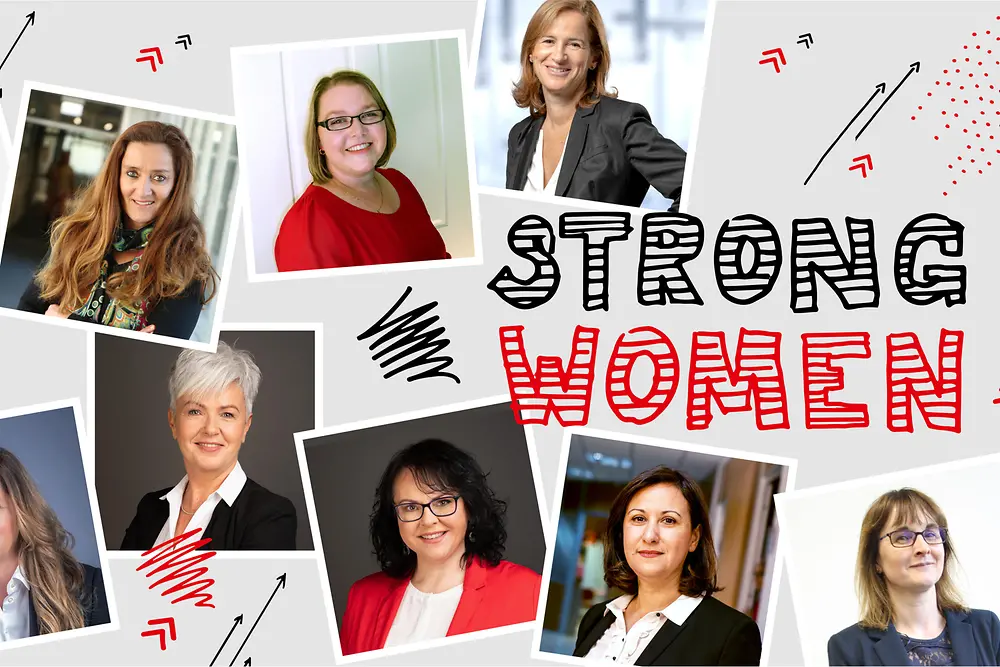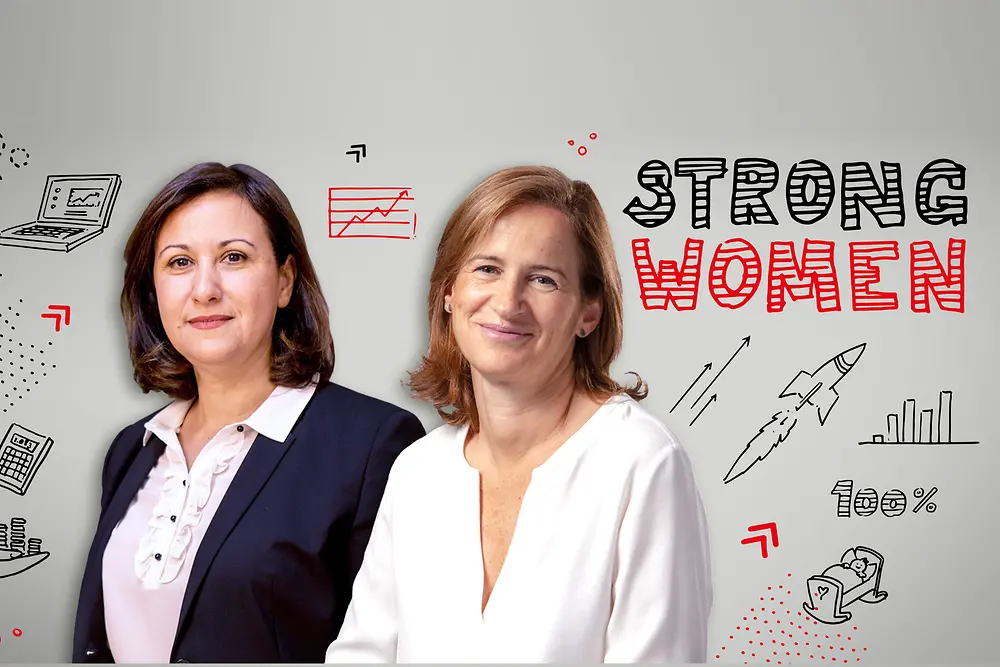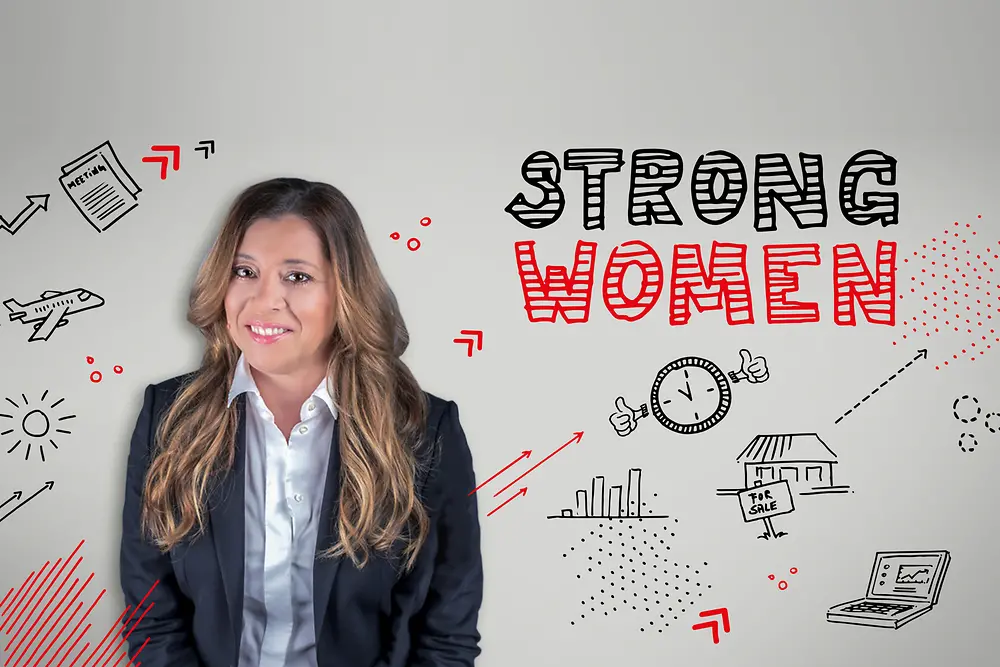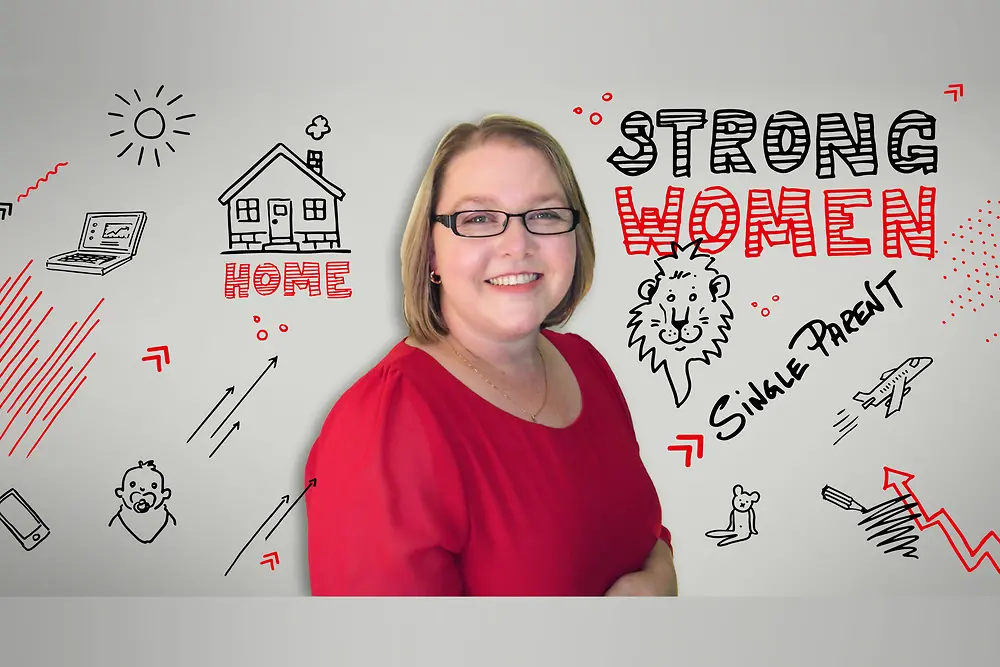Who run the world?

Two women, two stories, one passion. Rapeephan Chiraphichet and Claudia Wittfoth don’t know each other. One works for Henkel’s Supply Chain Management at the Bangkok office in Thailand, while the other is on the Corporate Communications team in Düsseldorf. The thing that connects them is their love of running: A love that gave them something to hold on to through difficult times. Both of them say that running makes them stronger. For our #StrongWomen series, they agreed to share their story.
Rapeephan’s story: All about that pace
When Rapeephan recalls the beginning of her running career, mental images of December 26, 2004 immediately come flooding back. The entire world still remembers the events of that day: An earthquake in the Indian Ocean triggered a tsunami that hit the coast in Southeast Asia and India. At the time, Rapeephan – a Thai native who now works as a team leader for the intra-regional import of merchandise in the Southeast Asia region – was staying on the island of Phuket with some of her friends. By a happy coincidence, the group decided to cancel a planned outing to explore a grotto: A coincidence which, as they would later realize, probably saved their lives. The scale of the tsunami wasn’t known to anyone at the time. “We waited the entire night for news, everyone was tense. When someone suddenly shouted that a second wave was moving towards Phuket, we all jumped up and ran to the nearest mountain,” Rapeephan recalls.
Still, she could never have imagined that she would be taking part in an ultra-marathon one day. Work had always come first in Rapeephan’s life. Fitness wasn’t on her radar. At school, she says, she was convinced that she had no talent for sports. Yet the memory of her performance on that night in 2004 endured, and it changed her. In 2015, Rapeephan grabbed her running shoes and entered her first race. “When I crossed the finish line, I thought I would never run again,” she recalls. “I was exhausted, and it had taken me almost an hour to run 6 kilometres. But then I was gripped by the ambition to improve, and since that day I have made running a priority in my life.”
Today, Rapeephan enters marathons, ultra-marathons and trail runs – and regularly secures places on the podium. To do this, she trains four to five times a week. However, that fateful day in 2004 didn’t just trigger her love of running: Rapeephan has also evolved as a person. “I live more consciously in the here and now. I know that things can happen in an instant, so I take better care of the people around me. I train to be able to live longer and take care of my family for longer.”
Her motivation has allowed Rapeephan to keep pushing her limits – she tried bungee jumping in spite of her fear of heights, and she goes scuba diving despite not knowing how to swim. Her strategy is simple: “I’m afraid of so many things, but somehow I still get through it every time. I can only encourage others not to underestimate themselves. Everyone has the potential, you just have to take the leap.”
Her dearest wish? After her last race in the Kyoto Marathon, with a personal best running time of four hours and nine minutes, she wants to complete a 100 kilometre trail run.

THREE QUESTIONS TO RAPEEPHAN
What do you value the most?
My family and my health. When you have the right people around you and take care of your personal wellbeing, it gives you positive energy for everything you want to do in life.
What is the best advice you’ve ever gotten?
You should treat others the way you would want to be treated.
If you could meet your 11-year-old self, what advice would you give her?
In school, I was often bullied for being too short or too fat. I would like to tell the 11-year-old Rapeephan that she shouldn’t listen to negative comments, because she’s perfect just the way she is.
Claudia’s story: Champions run hard when it's hard to run
For Claudia Wittfoth, happiness is synonymous with traveling light: ideally, with nothing but a small backpack. Be it in Greece, Lanzarote or Ibiza, she is always seeking to combine her love of travel with her second passion, running. Just like Rapeephan, it was love at second sight for Claudia. She has always been game for physical challenges: Before joining Henkel, she worked as a stuntwoman in television for a few years. “But who would willingly run 14 kilometres around a lake? That’s crazy!” she would say mockingly to her best friend, while in their early twenties. “I’ve always done a lot of sports, I was curious and tried many different things, but I wasn’t interested in running. At least, not until I turned 30,” she says. While people her age were focused on getting married, building a house and starting a family, Claudia filled her bucket list with new adventures. One of them was to finish a marathon once in her life. Her 30th birthday rolled around, Claudia rose to the challenge and ran the 42.19 kilometres to the finish line.
After that day, she began to run more often, but it wasn’t until a few years later that she really became hooked. Similar to Rapeephan, it would take a stroke of fate. During her 2009 summer holiday, Claudia, who at the time had never seen a doctor for anything other than routine checkups, began to feel numb in the left side of her face. She didn’t think much of it, but still made an appointment with a doctor as a precaution when she returned from vacation. Three days later, Claudia found out the sad truth: She had multiple sclerosis (MS).
Two weeks following the diagnosis, Claudia was back at her desk. Initially, she had a hard time accepting it. Still, she spoke openly about her illness, including with her colleagues and Henkel’s Social Services. Eventually, she understood that the disease was only one part of who she was – a part that shouldn’t stop her from following her passions.
As coincidence would have it, Claudia earned a place in the marathon of her hometown of Essen in 2014. In spite of, or perhaps because of the MS, she took up running long distances again. “I have all the more reason to do it now,” she thought to herself. What followed was a development that would seem incredible even for a healthy person. “I met a group of runners during the marathon, who told me about their 200-kilometre nonstop ultra-runs. I was fascinated by the idea, and I wanted to try it myself at all costs.” From that day forward, she immersed herself in a training program: 50 kilometres to start with, and then longer and longer distances, all the way to the most emotional race of her running career so far – last year’s 100-kilometre run, the so-called TorTour de Ruhr. Claudia is reasonable, however, and gets herself checked regularly by a sports doctor, a cardiologist and a neurologist. The latter is also her biggest fan: “She thinks that what I’m doing is great, and she believes that my personality contributes to my wellbeing. I’m not saying that everyone with MS needs to run in order to feel as good as I do – that’s not true. Still, despite my diagnosis, I am living with very few symptoms, which I’ve accepted and integrated in my daily life.”
Although she continues to live with the anxiety of not having an exact prognosis, this fear is also her biggest source of motivation. It helps her to get out the door and continue training, come rain or snow. Her wish for the future? That the illness will leave her enough time: for her family, for traveling and of course for running.
Claudia knows that the time might come when her body will no longer be strong enough – MS could even rob her of her mobility one day. Nonetheless, she is not giving up: “That’s why I’m running now... so I won’t have regrets later about not doing it when I was still able,” she explains.

THREE QUESTIONS TO CLAUDIA
Who or what inspires you?
In my personal life and at work, I am always inspired by people who have a passion for their thing, who have a vision, and who pursue their goals with ardor and courage. People who aren’t afraid to take detours to reach their destination.
What do you value the most?
Listening and showing respect to others. Always give your undivided attention to the person in front of you.
What does “being a woman” mean to you?
I am thankful and conscious of the fact that it’s a huge privilege to be a woman living in my culture and in this day and age. I have freedoms and possibilities, which, unfortunately, are not self-evident everywhere in the world.

